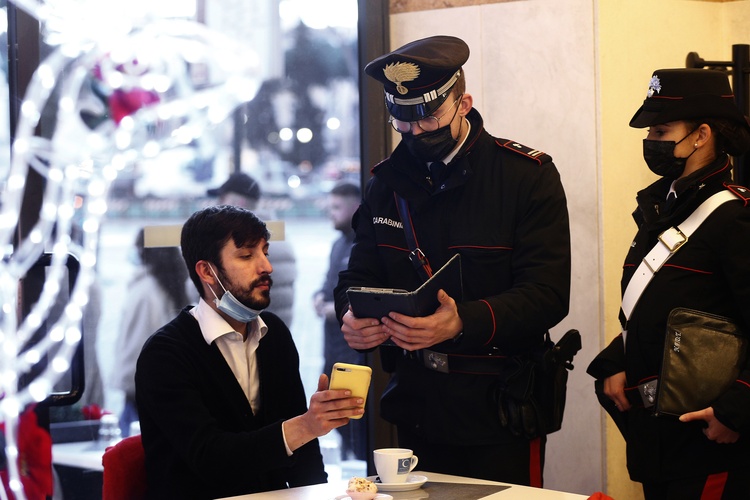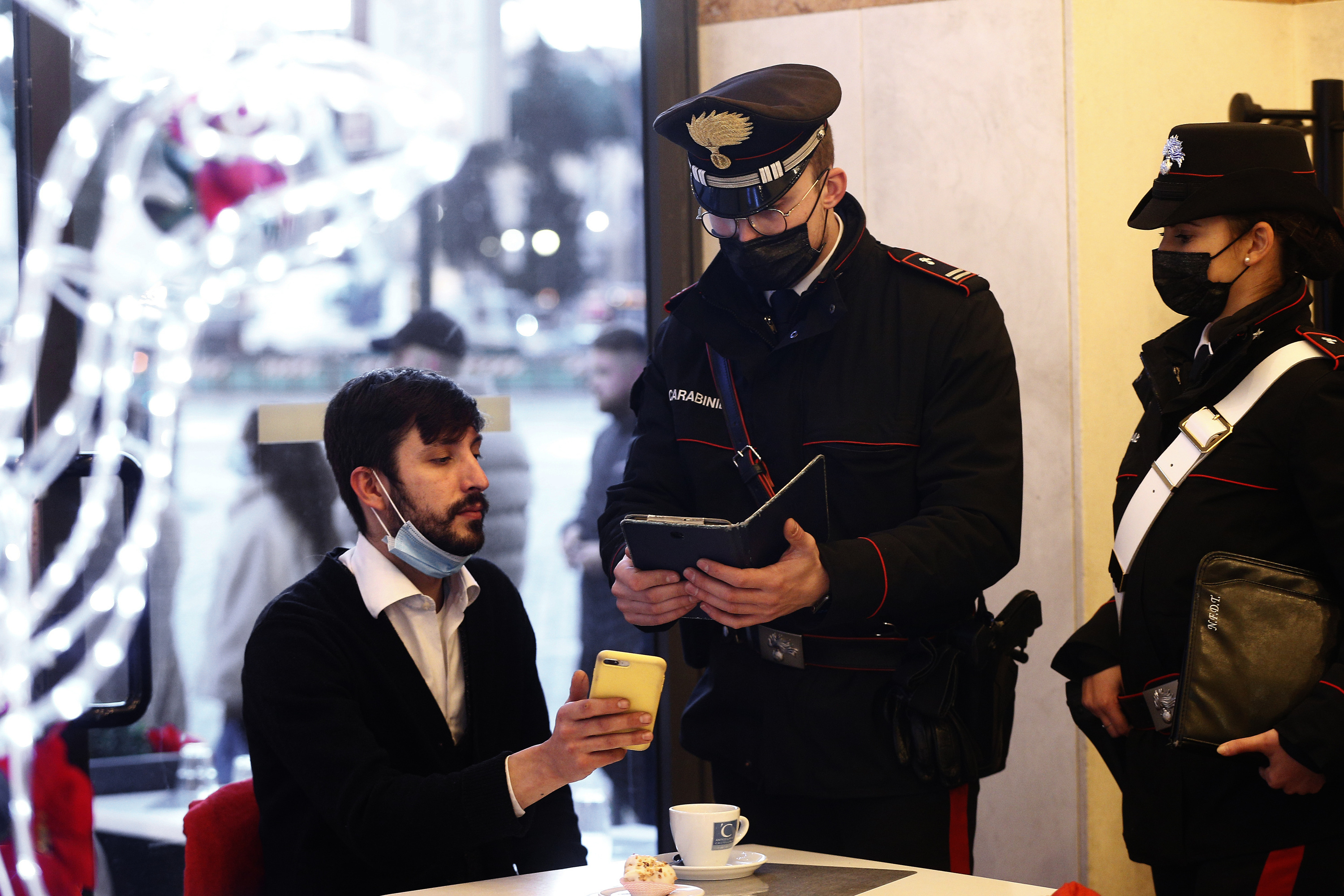On Monday, the country’s “super green pass” health certificate came into effect, which allows only those vaccinated or recovered from COVID-19 to access venues such as gyms, cinemas, theatres, concerts, major sporting events and indoor restaurants and bars.
The measure is set to remain in place until at least January 15.
Previously, Italy’s basic green pass was enough to enter such venues.
The basic pass shows that the carrier has been vaccinated, recovered from COVID-19 or tested negative for the virus in the previous 48 hours.
First introduced in August, the basic green pass was extended to the workplace and long-distance travel in October.
It is now also required to use local transport.
Unvaccinated workers may still access their workplace using the current system of getting tested every couple of days.
However, the government has extended the obligatory vaccine requirement, already in place for health workers, to the police force, military personnel and teachers.
Police are set to carry out random green pass checks on public transport and in restaurants over the Christmas season.
A 50-year-old Rome man became the first to receive a €400 fine after getting off the bus at the northern Piazzale Flaminio station without the green pass, said Stefano Napoli, deputy chief of Rome’s municipal police force.
Italy was the first European country to be hit by the pandemic in early 2020 and has so far reported more than 134,000 deaths.
Almost 85 per cent of the population aged over 12 is vaccinated.
Even though infections are rising, it has currently been less impacted than its neighbours, with around 15,000 to 20,000 new daily cases reported recently.
Italian news agency ANSA reported on Monday morning that more than 1.3 million green passes were registered in the previous 24 hours, a new record for Italy.











